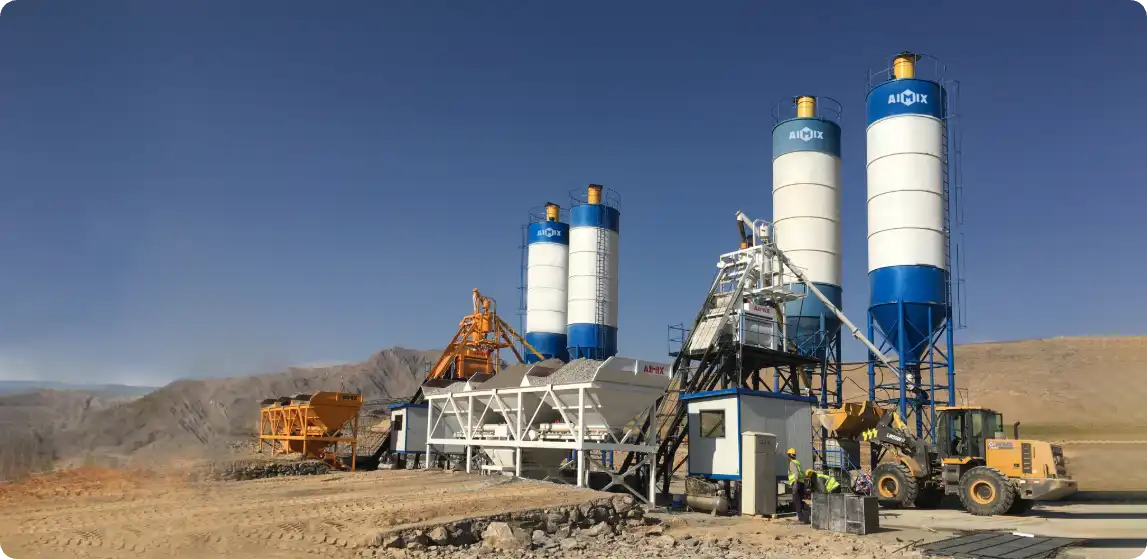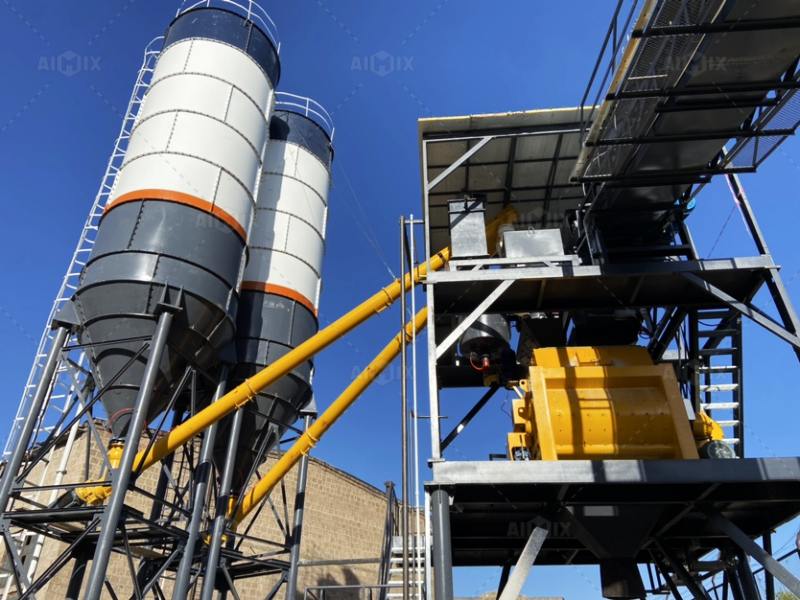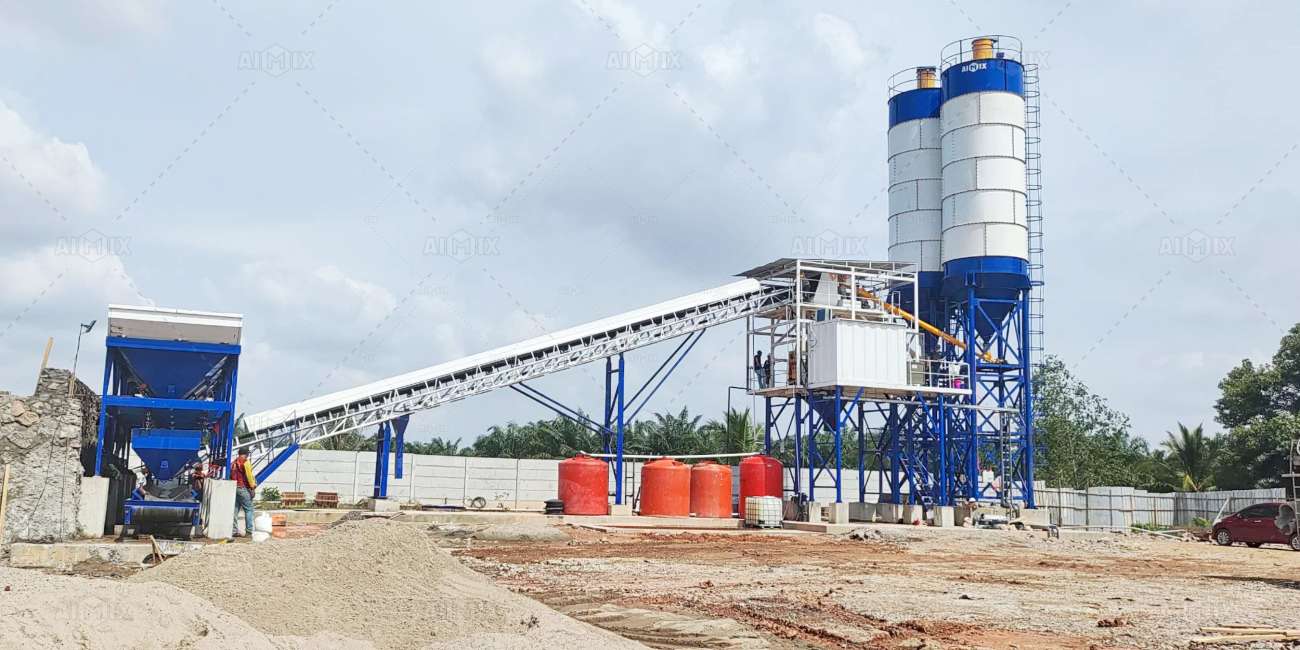In 2025, the construction industry continues its shift toward digital transformation, efficiency, and sustainability. Amid this evolution, the ready mix concrete plant cost may appear steep to some investors at first glance. However, technological upgrades across the sector are dramatically enhancing value, reducing operational waste, and enabling rapid returns on investment.
Whether you are launching an RMC plant business, upgrading your existing setup, or considering a mobile RMC plant, the advancements in automation, IoT, and sustainable technologies are transforming ready mixed concrete plants into smarter, more profitable operations.

The Rising Cost—and Value—of Technology in RMC Plants
Historically, the cost of a ready mix concrete plant depended largely on capacity, configuration, and location. In 2025, while the ready mix concrete plant cost still varies by size and automation level, modern plants offer far more than just mixers and silos—they are now hubs of intelligent technology.
From energy-efficient designs to fully integrated software control systems, the cost of ownership is increasingly being justified by productivity gains, lower operating expenses, and higher-quality outputs. Contractors and entrepreneurs alike are recognizing that spending more upfront on a tech-enabled plant often saves far more in the long run.
1. Automation: Precision and Productivity Combined
One of the most critical tech upgrades justifying plant investment is full automation of the batching and mixing process. Today’s RMC plants are commonly equipped with Programmable Logic Controllers (PLCs) and SCADA systems that:
Automatically weigh materials with high accuracy
Control mixing time and speed for consistency
Store and recall mix designs for different projects
Reduce manpower and human error
This level of precision ensures that every batch of concrete meets specifications, which is crucial for structural reliability. For those entering the RMC plant business, automation means you can produce quality mixes from day one without needing an experienced workforce.
2. IoT Integration: Real-Time Insights and Remote Monitoring
The Internet of Things (IoT) has brought a significant leap in operational control. In a modern ready mixed concrete plant, sensors monitor everything from moisture content and aggregate temperature to fuel consumption and wear on mechanical parts.
Key Benefits:
Remote Plant Operation: Plant managers can monitor and control production from mobile devices.
Predictive Maintenance: Alerts and data trends prevent costly breakdowns.
Inventory Tracking: Real-time data on raw material usage helps with procurement planning.
For companies operating multiple mobile RMC plants, IoT ensures that every unit runs efficiently, even in decentralized locations.

3. Mobile RMC Plant Tech: Flexibility Meets Smart Design
The mobile RMC plant is no longer just a scaled-down version of a stationary plant. In 2025, mobile units are engineered with modular components, quick-install designs, and advanced control interfaces. They’re particularly ideal for:
Short-term or remote construction projects
Roadwork or infrastructure in rural areas
Contractors seeking faster plant relocation
Many mobile concrete plants now come with smart features like GPS-based job tracking, onboard data logging, and real-time integration with dispatch and delivery systems. While mobile units may cost slightly more per cubic meter produced, the convenience, mobility, and tech benefits easily justify their share of the ready mix concrete plant cost.
4. Sustainability Features Reduce Long-Term Costs
Environmental standards and green construction practices are increasingly influencing buying decisions. Leading ready mixed concrete plants are incorporating eco-friendly features such as:
Recycled Water Systems: Reusing wash water from mixers and trucks
Dust Collection Units: Reducing airborne particles and improving site safety
Energy-Efficient Motors: Lowering electricity usage per batch
Though these features can increase upfront costs, they reduce environmental compliance fines, improve community relations, and enhance the company’s sustainability credentials—important for attracting government and commercial contracts.
5. Software and Data Integration: Smarter Business Decisions
Modern RMC plants are now often paired with software platforms that manage:
Production scheduling
Delivery logistics
Customer billing and invoicing
Performance analytics
These integrations give entrepreneurs and plant managers a comprehensive view of their operations, helping streamline workflows and increase profit margins. In an RMC plant business, where timing and reliability are everything, having data-driven insight can set you apart from the competition.

6. Future-Proofing Your Investment
Spending more on a tech-advanced plant in 2025 also means you’re better prepared for upcoming industry shifts. Increasing demand for real-time reporting, tighter regulations, and digital integration with construction sites (like BIM platforms) means older or manual systems will struggle to keep pace.
Leading concrete batch plant manufacturers are offering upgrade paths and modular expansions, making it easier to scale operations as demand grows.
Conclusion: Investing in Tech-Driven RMC Plants Is Worth It
While the ready mix concrete plant cost in 2025 may seem high compared to older models or manual setups, the value gained from modern technology justifies the investment. From automation and IoT integration to mobile plant flexibility and sustainability features, these tech upgrades drive down long-term operational costs and improve quality.
Whether you’re launching a mobile RMC plant for a niche market or building a large RMC plant business, embracing smart technology ensures you stay competitive, efficient, and profitable in an increasingly demanding construction environment.
